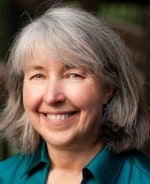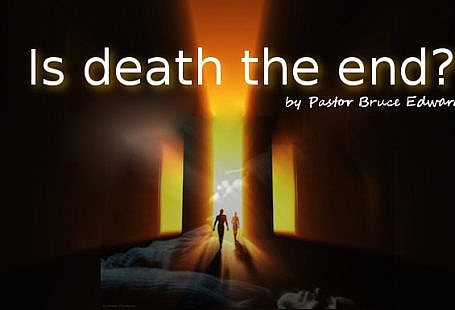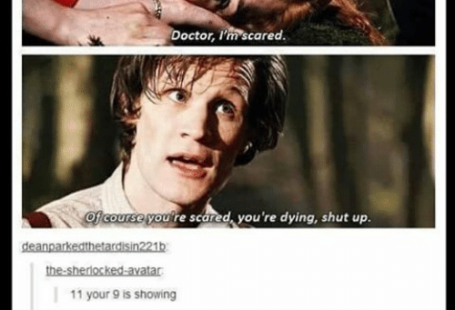One of the most important end of life lessons from people who are dying is to start preparing for the end-of-life before we actually get there, says Karen Wyatt, M.D. She encourages us to accept the fact that life is precious and fleeting, make the most of every moment, and live each day with purpose and meaning. We’ll then experience less pain and fear when the end of life arrives.
Karen is the author of What Really Matters: 7 Lessons for Living from the Stories of the Dying. This book describes the end of life lessons she learned from her hospice patients – and her work has helped her to no longer fear her own death. “I live fully each day so that whenever the day of my death arrives I will know that I have made the most of this life and left little undone,” she says. “I will be at peace and my heart will be full.”
When she first started working with people who were dying, Karen viewed the dying process as a tragedy that we just had to make as tolerable as possible. “I did not understand that dying is actually the final developmental stage of life,” says Karen. “The process of dying can be joyful and transformational. Through my hospice work, which enabled me to witness and participate in this final process with so many different patients, I quickly came to see death as a sacred transition to a different state of existence and the dying process as preparation for that transition.” That’s the first life lesson from the people who are dying: death is a transition, not necessarily the end of who we are.
End of Life Lessons From Dying People
These lessons for living are from an interview I did with Karen, and are in her own words. You can connect with her at End-of-Life University or her website – both links are in her bio at the end of this article.
Do your spiritual work. Dying people who had done their spiritual work (e.g., who had taken a conscious approach to their lives and worked to understand the meaning and purpose of their lives), seemed to have an easier time negotiating the end of their lives. People who had been practising love and forgiveness for many years had fewer loose ends to tie up at the end of their lives, and could relax and say goodbye with greater ease. One of the most important end of life lessons from dying people is to learn how spirituality affects palliative care.
Life is meant to be a spiritual journey – no matter how many days it lasts. I live every day with awareness of the joy and beauty of life on this planet, with an intention to practice love and forgiveness at all times, and with gratitude for every breath, every moment of life.
Preparing for death alleviates fear of dying. Hospice patients who had prepared for death by contemplating it and coming to terms with the fact that every living thing will ultimately die were the most comfortable and seemed to suffer less than patients who hadn’t prepared to die. These dying people were able to view the dying process with curiosity and fascination rather than fear. Consequently, they tolerated each stage of the dying process with equanimity. If this is an end of life lesson that is hard for you, read How to Prepare Yourself for Death.

“End of Live Lessons From Dying People” image via Pixabay, CC License
Seek meaning, forgivenenss, and love in your life. I saw many patients heal long-standing conflicts and many patients finally able to forgive people from their past. I saw the miraculous potential of love as patients said their last goodbyes, and I observed that many people were able to accept their death with peace because they had found meaning during their lives. These end of life lessons from people dying would have helped me be more comfortable in the early days of my hospice work.
Incorporate alternative therapies for end-of-life patients, such as music therapy, aromatherapy, acupressure, supportive yoga postures. These alternative therapies for dying people would have been very helpful for the hospice patients I worked with. Some may have required less pain medication because of the relief they might have received from these alternative health therapies.
Think about hospice or palliative end of life care early. Most dying people I worked with would have benefitted greatly by being admitted for hospice or palliative care services much earlier during the course of their illness. The integrated team approach to illness and end of life care offered by hospice and palliative teams are very effective at helping patients with symptom relief. End of life care for a longer period of time is also very helpful for a dying person’s emotional and spiritual needs.
Allow for humor and joy at the end of life. This lesson doesn’t negate the fact that end of life is a very intense time. However, there is still room for humor in the moment! Life itself presents us with ample opportunities for laughter every day, and the end of life is no different. I have laughed with many patients on their deathbeds while they told me funny stories or shared humorous events. One hospice patient told me hilarious stories about her husband trying to learn how to cook for her, and another showed me some silly hairstyles she had created with her wig.
Find peace in the frustration that dying brings. When my own mother was dying we laughed together every day over the challenges we were facing together and the frustration of trying to do things that were new to us. But those moments of genuine laughter brought us so much closer and lightened the pain and dread we were feeling. In fact, they reminded us of all the other moments of humor and joy we had shared throughout this lifetime together. Even when I was crying at the end of her life, I couldn’t stop smiling because my heart was bursting with joy and love. This is an end of life lesson I couldn’t have learned without working with people who are dying.
It is never too late to find your talent, peace, or joy – even during the last moments and days of life. One of our hospice patients was a homeless man who discovered that he had a talent for drawing in the last few weeks of his life. He created beautiful works of art for the first time in his life, as he was nearing his final breath. Another patient healed a lifetime of pain and anger over trauma she had experienced in childhood when she was finally able to break through to forgiveness just before she died. Though the body weakens and fades away during the dying process, the soul shines even brighter and offers hope for transformation and fulfillment in every moment. Do not fear what is coming in the future; focus your attention on what is right here, right now. Make room for laughter, make room for love, make room for forgiveness.

Dr Karen Wyatt, interviewed for “End of Life Lessons From People Who Are Dying”
If you have any thoughts on these end of life lessons from dying people, please feel free to share below.
Dr. Karen Wyatt is a family practice physician who spent most of her 25-year career in medicine caring for patients in nursing homes, hospices, free clinics and homeless shelters. Dr. Wyatt also hosts an online interview series entitled End-of-Life University, which features interviews and conversations about all aspects of the end-of-life.
Karen teaches that in order to live life fully we must each overcome our fear of death and embrace the difficulties that life brings us. She is an inspired teacher who truly embodies the message she brings to the world. Connect with her directly at Karen Wyatt, MD.





